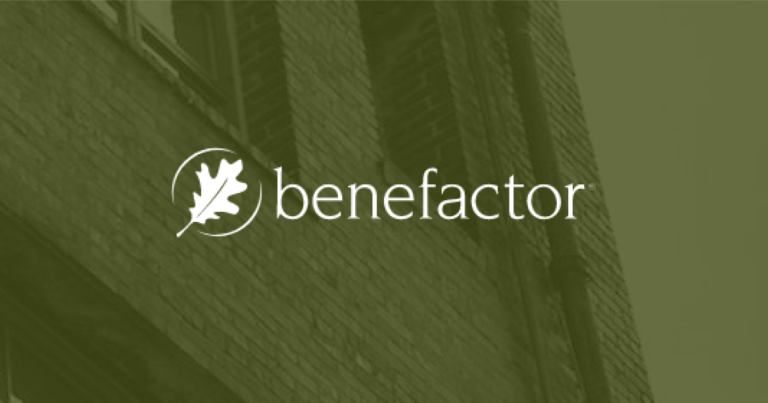Why did you get involved with serving nonprofit organizations?
I started my career in the nonprofit world as a fundraiser. Like many in this industry, I didn’t seek out fundraising…the fundraising world found me. I began as a fundraiser in higher education with a generalist focus—meaning I spent time on major and planned giving, annual giving, and donor stewardship. It was through this work that I developed a true passion for the nonprofit industry. Every day, I had opportunities to partner with amazingly generous donors to directly impact the lives of students, create opportunities for expanded research, or establish new facilities. It’s been an incredibly meaningful part of my life.
Why did you join Benefactor Group?
Having worked with Benefactor Group on a feasibility study years ago, I have tremendous respect for the high quality of work and thoughtful, authentic counsel the firm provides. The team’s commitment to constant improvement, creativity, and genuine strategic partnerships with clients resonates with my personal approach to my work. I’m looking forward to learning from every member of the Benefactor Group team, with our diverse and unique clients, and to sharing my ideas and experience through our work together.
What inspires you to serve the common good?
While I’ve always been drawn to the nonprofit industry, for me, this work has also become about personally giving back. I’ve been fortunate to watch one of my children have a wonderful and life-changing experience that would not have been possible without the mission-driven work of a truly incredible nonprofit organization. There are so many nonprofits that provide important services, resources, and experiences within our communities. I’m grateful to have had the opportunity throughout my career to work with some amazing nonprofits—to be a resource and provide value to them as a fundraising professional.
We are living in rapidly changing times, which extends to the philanthropic landscape. What gives hope for the future of philanthropy over the next five years?
I believe people are innately generous with their time, talent, and resources. Regardless of economic and political fluctuations and generational changes, most people will continue to give back to the causes and missions that matter to them. Surveys are showing the Millennial and Z generations have different giving preferences than previous generations, but they are still highly inclined to contribute. We may see shifts in where or how gifts are designated—for example, higher education may see fewer gifts than social or grassroots causes—and how gifts are made. As an industry, it will be important that we learn and adjust to these changes so that we can be good stewards of their generosity and create compelling opportunities for engagement.
What influences how you give, volunteer, or advocate?
I was raised in a family and community that valued and modeled giving back through philanthropy and volunteerism. As I’ve explored my own philanthropic priorities, I’ve learned that giving back as part of a group—collective giving—has been very meaningful for me. I was a founding member of a group called Women in Philanthropy that was built on the principles of embracing the different motivations and ways that women give. We brought together philanthropically-minded women who sought to make a difference within the university community. In the fourteen years I have been involved with this group, I have been able to give back, volunteer, and build relationships with a diverse and inspiring group of women while seeing the impact of our collective generosity fund research, learning, travel, community improvements, and more.
If you could make a $1 million gift to any organization, where would you direct your contributions and why?
While I would love to make a $1 million gift to one organization, I would probably be more inclined to make a series of 5- or 6-figure gifts to multiple causes whose missions mean a lot to me. Providing resources for children in need, including those with lifelong illnesses. Stewarding our nation’s history and environmental resources. Making educational opportunities more widely accessible. Impacting animal welfare organizations’ abilities to take in, treat, and find a forever home for animals in need.
Where can someone find you when you’re not at work?
At my children’s sporting events, plays, or performances. In the summer, you can often find me doing something outdoors. In the winter, I love designing and taking on projects (sometimes big, and sometimes small) in my historic home.
What are you currently reading, or what do you recommend?
I’m currently re-reading The Coaching Habit, by Michael Stanier. It was recommended to me years ago when I first began supervising a fundraising team. I found it practical and the recommended strategies easy to adopt.
I would also recommend The Secret Thoughts of Successful Women by Valerie Young, Ed.D. While this book focuses primarily on women’s experiences in the workplace, it is applicable and relevant for any gender. It is an excellent discussion about “Imposter Syndrome,” which is something that I would argue many—if not most—people face as they advance in their careers, transition into new roles or industries, or take on new projects.






